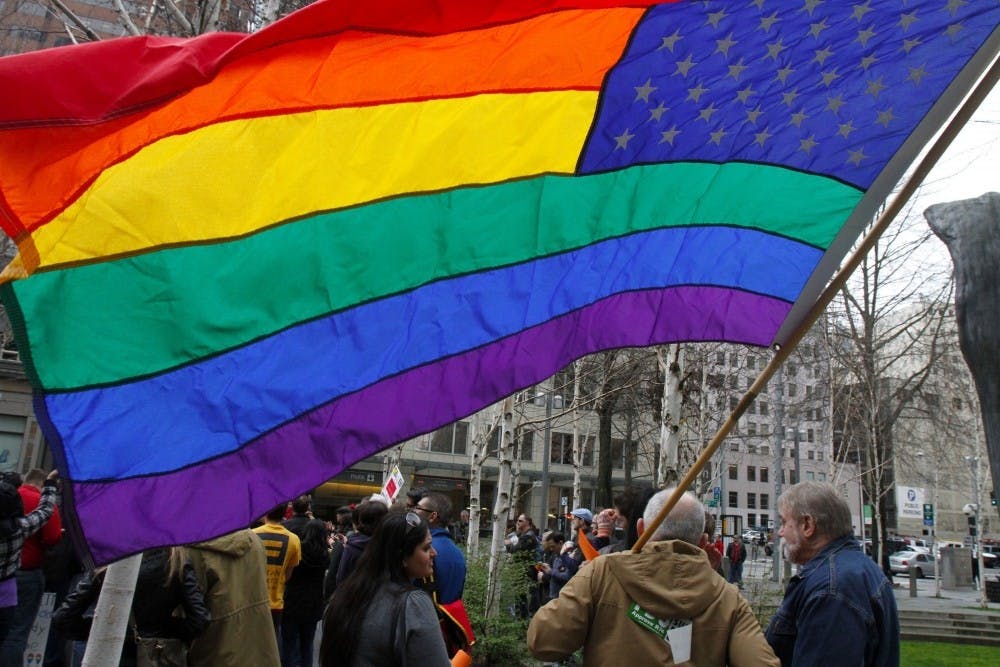Bans on same-sex marriage in Indiana were ruled unconstitutional in the 7th U.S. Circuit Court of Appeals on Friday. However, same-sex couples still cannot get married in Indiana.
Christie McCauley, president of Spectrum, said her response to hearing about the ban being ruled unconstitutional was mixed, because of the staystill in effect.
“We knew immediately that the stay was still in place, so even though the ruling happened, we still can’t get married,” McCauley said.
On June 25, U.S District Judge Richard Young declared the ban unconstitutional and same-sex couples were allowed to get married, but then later in the day, the state of Indiana filed an emergency motion to stay the pending appeal with the U.S. District Court.
McCauley said since this is the second ruling, it solidifies the progress that was already made by the first ruling.
“It kind of solidifies that yes, this is unconstitutional to do this,” McCauley said. “I know at least the Indiana case is going to go to the Supreme Court so that’s even more of visibility, and again a more secure statement that yes, we are here and yes, we are demanding our rights.”
To McCauley, the rulings show that marriage equality is inevitable and is going to happen. But before that happens, she said she thinks a Supreme Court decision would help to end the battling.
“I think as more laws pass, that helps change public opinion, so as public opinion changes, then it’s going to be full and open,” McCauley said.
Nineteen states and Washington D.C. give same-sex couples equal marriage rights, according to freedomtomarry.org. Twelve have a pro-marriage court ruling that is on hold pending appeal and approval, including Indiana.
Charles Taylor, an associate professor of political science, said he thought long term, the decision was a big win for Indiana.
“[This ruling] shows the effect that the lower courts have taken,” Taylor said.
He said although this impacts a small amount of people, compared to the whole population, it makes a big impact on their lives.
“They have incentive to push to be treated in a way they feel is fair and constitutional,” Taylor said.
The ruling, written by circuit judge Richard Posnar, said, “We’ll see that the governments of Indiana and Wisconsin have given us no reason to think they have a ‘reasonable basis’ for forbidding same-sex marriage.”
Posnar wrote that the grounds Indiana and Wisconsin gave for their discriminatory policies were implausible.
While everyone might not be affected by this decision, there are still many people who feel very strongly about it.
“There are a lot of people who aren’t directly affected by it who kind of feel like it’s a matter of fairness that the policy should change and I feel like that segment of the population has been growing and public opinion has been swinging this way,” Taylor said. “On the other side, you’ve got a significant portion of people that feel very strongly that same-sex marriage shouldn’t be permitted under the law.”
He said whether or not the Supreme Court makes a ruling will mandate how big of an issue this will be in the future.


